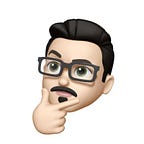What Your First Question Should Always Be
Before you write something to inform others about a given topic. Before you tell someone your opinion on a topic. Before you go into a meeting where you have to negotiate or report out. There is one question you will need to ask and really meditate on:
What don’t I know?
It’s not so that you can stress yourself out, lose confidence, or prepare for failure. Rather, you ask yourself this question so that you don’t overextend yourself. So you don’t present too strong an argument, and so that your reputation, your project, or whatever it is you’re looking to strengthen with what you’re doing doesn’t take a serious hit.
The urge we tend to have in order to make ourselves look good is to have all the answers. We want to be able to keep talking, and tell people things that we think will make them see us as experts. But in reality, asking a good question will make you look exponentially smarter than making any statement will.
I have a kind of mentor at my job, and while I don’t report to him, we work on a lot of projects together. There is a mantra that he repeats often: How can you use the information you have to your advantage? It’s a great question to think about, but it’s only half the story.
The other half of the story is this: how can you also use the information you don’t have to your advantage? The easy way to do that is to use your lack of information to ask skillful questions. If you don’t know something that you think would be really useful to know, simply think of a way to ask the question while showcasing what you do know.
So long as you are genuinely interested in finding the answer to your question, and really listen to the responses you get, you should do well in gaining both knowledge and credibility in your interactions.
Underlying all of this, is to two things:
- intellectual honesty
Knowing what you know, what you don’t, and being open to changing your stance based on learning new information. - humility
Being willing to admit to others that you don’t know things, that you’re curious, and that you think they know more. Then being willing to ask for information and instruction from them.
Being intellectually honest and humble, and acting out those traits with others goes a long way — longer than trying to show how much you do know. You might end up realizing something that seems kind of counterintuitive:
Being smart rarely involves knowing a lot of things, but rather, being able to effectively identify what you don’t know, and understanding the best way to gain that knowledge.
Did you find value in this piece? Consider subscribing to my weekly newsletter — Woolgathering. It’s one email per week, with interesting stuff to ponder, from me and from around the web.
